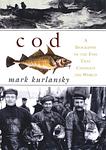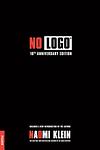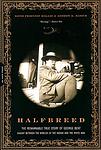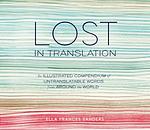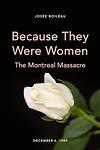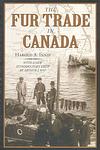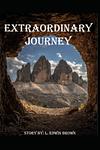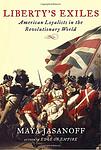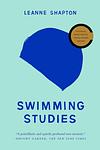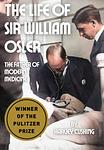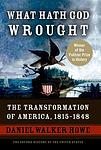The Greatest "Canada, Nonfiction" Books of All Time
Click to learn how this list is calculated.
This list represents a comprehensive and trusted collection of the greatest books. Developed through a specialized algorithm, it brings together 300 'best of' book lists to form a definitive guide to the world's most acclaimed books. For those interested in how these books are chosen, additional details can be found on the rankings page.
Genres
The "Canada" category for books would encompass literature that is set in, written by, or about Canada and its people. This category would include a wide range of genres, such as fiction, non-fiction, poetry, and memoirs, and would explore various themes related to Canadian culture, history, and identity. Books in this category would offer readers a unique perspective on Canada and its diverse communities, landscapes, and experiences.
Countries
Date Range
Reading Statistics
Click the button below to see how many of these books you've read!
Download
If you're interested in downloading this list as a CSV file for use in a spreadsheet application, you can easily do so by clicking the button below. Please note that to ensure a manageable file size and faster download, the CSV will include details for only the first 500 books.
Download-
1. The Emigrants by Winfried Georg Sebald
"The Emigrants" is a novel that explores the experiences and memories of four different emigrants, each with a unique and complex history. The narrative primarily focuses on the psychological impact of displacement and the haunting nature of the past. The author delves deep into their lives, revealing their struggles with identity, loss, and the persistent influence of their roots. The narrative is interwoven with historical events, photographs, and other documents, creating a rich tapestry that blurs the line between fact and fiction.
-
2. Cod: A Biography of the Fish that Changed the World by Mark Kurlansky
This book is a fascinating exploration of the historical, cultural, economic, and ecological impact of the codfish. It traces the role of this fish in shaping economies, sparking wars, and influencing culinary trends across centuries and continents. The book also delves into the devastating effects of overfishing and the current struggle to sustain cod populations. The narrative combines history, science, and gastronomy to present a comprehensive biography of this significant fish species.
-
3. No Logo by Naomi Klein
This book explores the negative effects of corporate branding and globalization. It critiques the marketing strategies of large corporations, arguing that they exploit workers and manipulate consumers. The author also discusses how these corporations have a significant influence on culture and public space. The book suggests that consumer activism and grassroots movements can serve as effective counter-forces to corporate power.
-
4. The Medium Is The Massage by Marshall McLuhan
"The Medium Is The Massage" explores how media, more than the content it carries, influences and shapes human perception and society. The book argues that each medium, independent of content, creates a new environment that alters our sensory balance and social dynamics. It emphasizes that the medium through which we receive information—be it print, television, or radio—plays a crucial role in shaping our experiences and understanding of the world. The work is a seminal exploration of media theory, famously coining the phrase "the medium is the message," to highlight the profound impact of the medium itself over the content delivered through it.
-
5. The Curve Of Time by M. Wylie Blanchet
"The Curve of Time" is a captivating memoir that chronicles the summer voyages of a widowed mother and her five children as they explore the rugged coastline of British Columbia in the 1920s and 30s aboard their 25-foot boat. With lyrical prose and a pioneering spirit, the narrative weaves together the family's adventures and encounters with the natural world, indigenous communities, and isolated settlers. The book is a reflection on time, nature, and the enduring bonds of family, offering a timeless meditation on grief, resilience, and the enchanting mystery of the sea.
-
6. The Moccasin Maker by E. Pauline Johnson
"The Moccasin Maker" is a collection of short stories and essays that delve into the lives and experiences of Indigenous people at the turn of the 20th century. Through a blend of fiction and autobiographical elements, the work explores themes of identity, cultural conflict, and the impact of colonization on Indigenous communities in Canada. The author, herself of mixed heritage, provides a nuanced portrayal of the struggles and resilience of her characters, often challenging the prevailing stereotypes and offering a unique perspective on the complexities of living between two worlds. The stories are notable for their rich characterizations and the author's lyrical prose, which captures the beauty and sorrow of the cultural landscape she describes.
-
7. Halfbreed by Maria Campbell
This autobiographical book is a powerful and candid account of a Métis woman's struggles with identity, poverty, and racism in Canada. It chronicles her journey from a difficult childhood in a small Saskatchewan community, where she faced discrimination and personal tragedies, to her efforts as an adult to find her place in a society that often marginalized Indigenous people. The narrative is a poignant exploration of the author's search for self-acceptance, cultural pride, and her fight against the systemic injustices that Indigenous communities have endured. Her story is a testament to resilience and the strength found in embracing one's heritage.
-
8. The Glenn Gould Reader by Glenn Gould
"The Glenn Gould Reader" is a compilation of writings by a renowned Canadian pianist, known for his unique and insightful perspectives on music and culture. This collection offers a window into the artist's mind, featuring a diverse range of essays, articles, reviews, and interviews that explore his philosophies on performance, the intricacies of musical interpretation, and the role of technology in the arts. His articulate and often provocative commentary extends beyond classical music to touch upon a variety of subjects, reflecting his broad intellectual interests and distinctive voice in the world of music and beyond.
-
9. Great Heart by James West Davidson, John Rugge
"Great Heart" is a riveting historical account of the 1903 expedition across Labrador, one of the most inhospitable regions in North America. The book details the journey of four men and their struggle for survival against the harsh elements. The narrative is enriched with the explorers' own words, taken from their journals, giving readers an intimate look into their extraordinary adventure. The book is a testament to the human spirit and the will to survive, even in the face of insurmountable odds.
-
10. My Father's House by Sylvia Fraser
The book is a harrowing memoir that delves into the author's traumatic childhood, marked by the dark secret of her father's sexual abuse. The narrative unfolds as the author, after years of repressed memories, begins to confront the truth about her past. This journey of self-discovery and healing challenges her understanding of family, memory, and identity. The memoir is a poignant exploration of the long-term effects of abuse and the complex process of recovery, as the author grapples with the betrayal by a person who should have been her protector, ultimately striving to reclaim her sense of self.
-
11. Lost In Translation by Eva Hoffman
"Lost in Translation" is a memoir that explores the profound complexities of identity and language through the lens of a young girl's emigration from Poland to Canada and then to the United States. The narrative delves into the emotional and psychological challenges of adapting to new cultures, the sense of displacement, and the search for belonging. It poignantly captures the experience of losing one's homeland and the struggle to assimilate while maintaining a connection to one's roots. The author reflects on the nuances of language and the deep connection between language and self, offering insights into the immigrant experience and the transformative power of embracing multiple worlds.
-
12. The Montreal Massacre by Louise Malette and Marie Chalouh
The book provides a detailed account of a tragic event that took place at an engineering school in Montreal, where a gunman targeted female students, resulting in the loss of numerous lives. The authors delve into the societal and cultural factors that may have contributed to the perpetrator's motivations, examining issues of gender-based violence and misogyny. Through interviews, personal reflections, and analysis, the book seeks to honor the victims and explore the broader implications of the event for Canadian society and the ongoing struggle for gender equality.
-
13. Notes From The Century Before by Edward Hoagland
In "Notes From The Century Before," the author embarks on a vivid exploration of British Columbia's remote wilderness in the 1960s. Through a series of journal entries, he recounts his encounters with the rugged landscapes, diverse wildlife, and the eclectic mix of settlers, trappers, and indigenous peoples who inhabit this frontier. His observations are both introspective and expansive, offering a reflective and often lyrical meditation on nature, civilization, and the human experience at the edge of the modern world. The narrative serves as a time capsule of a bygone era, capturing the spirit of adventure and the complexities of cultural intersections in a land poised on the cusp of change.
-
14. The Fur Trade In Canada by Harold A. Innis
"The Fur Trade in Canada" examines the pivotal role of the fur trade in the development of Canada, tracing its impact from the early days of French and British exploration and trade with Indigenous peoples through to its influence on economic and regional development. The book delves into the complex interactions between European traders and Indigenous communities, and how the demand for beaver pelts in Europe shaped the economic, social, and political landscapes of what would become Canada. The author uses extensive economic and historical analysis to argue that the fur trade was not merely an economic venture but a crucial factor in the formation of the Canadian nation.
-
15. Wonderful Life: The Burgess Shale And The Nature Of History by Stephen Jay Gould
"Wonderful Life: The Burgess Shale And The Nature Of History" explores the fascinating Burgess Shale fossil site in Canada and its profound impact on our understanding of evolution. Stephen Jay Gould delves into the diverse and bizarre creatures that once inhabited this ancient ecosystem, highlighting their significance in challenging traditional views of the evolutionary process. Through vivid storytelling and scientific analysis, Gould presents a thought-provoking argument that the history of life is contingent and unpredictable, emphasizing the importance of contingency in shaping the course of evolution.
-
16. The Boy In The Moon: A Father’s Journey To Understand His Extraordinary Son by Ian Brown
"The Boy in the Moon" is a memoir written by Ian Brown, a Canadian journalist, about his life with his severely disabled son, Walker. The book chronicles Brown's struggles to understand and care for his son, who suffers from a rare genetic disorder that leaves him unable to walk, talk, or even eat on his own. Brown's journey is one of heartbreak, frustration, and ultimately, acceptance, as he learns to love and appreciate his son for who he is, rather than who he might have been. Through his compelling and deeply personal narrative, Brown sheds light on the challenges faced by families with disabled children, and offers a poignant meditation on the nature of love, family, and the human condition.
-
17. The Oregon Trail by Francis Parkman
"The Oregon Trail" is a historical account of a two-and-a-half month summer tour in 1846 of the U.S. states of Nebraska, Kansas, Colorado, and Wyoming. The book captures the experiences of the author and his companion as they journey from St. Louis to the Rocky Mountains and back. The narrative is rich with descriptions of the landscapes, wildlife, and people they encounter, including several Native American tribes. The book provides a vivid depiction of the West before industrialization and settlement.
-
18. Kabloona by Gontran de Poncins
"Kabloona" is a riveting first-person account of a French nobleman's year-long journey living among the Inuit people in the Arctic during the late 1930s. The book provides an in-depth exploration of the Inuit culture, their harsh living conditions, and their unique perspective on life. The author's experiences and observations challenge and broaden Western notions of 'civilized' society, making it an enlightening read.
-
19. Journal of the Voyage to the Pacific by Alexander Mackenzie
"Journal of the Voyage to the Pacific" is a travelogue that documents the author's journey from Great Slave Lake in Northwest Territories, Canada, to the Pacific Ocean. The author, an explorer, details the challenges and experiences he encountered during the first recorded transcontinental crossing of North America north of Mexico. The book provides an insightful view into the landscapes, indigenous cultures, and natural history of the late 18th century North American continent.
-
20. Conversations With Glenn Gould by Jonathan Cott
"Conversations with Glenn Gould" is an insightful exploration into the mind of one of the twentieth century's most enigmatic and fascinating classical pianists. Through a series of interviews, the book delves into Gould's thoughts on a range of subjects, from his radical interpretations of Bach and his decision to abandon live performances, to his preferences in music, art, and life. The dialogues reveal Gould's complex personality, his intellectual rigor, and the idiosyncratic philosophies that guided both his musical career and personal life, offering readers a unique glimpse into the inner workings of a genius.
-
21. Liberty's Exiles: American Loyalists in the Revolutionary World by Maya Jasanoff
The book provides an in-depth exploration of the experiences of American Loyalists who were forced into exile following the American Revolution. It details their struggles and hardships as they sought to rebuild their lives in far-flung corners of the British Empire, including Canada, the Caribbean, Sierra Leone, and India. The book also examines the broader impact of this mass migration on the shaping of the British Empire and the early United States.
-
22. Masterworks of the Classical Haida Mythtellers by Robert Bringhurst
"Masterworks of the Classical Haida Mythtellers" is a collection of stories from the Haida people, an indigenous group from the Pacific Northwest Coast of North America. The book provides a deep and insightful exploration of Haida mythology and culture through its rich oral literature. The author has painstakingly translated these tales from the original Haida language into English, maintaining their poetic and narrative essence. The collection serves as a significant contribution to the preservation and understanding of Haida cultural heritage and indigenous storytelling traditions.
-
23. Swimming Studies by Leanne Shapton
This memoir offers a unique and introspective look into the world of competitive swimming and how it shapes one's identity and life beyond the pool. The author, a former Olympic trial swimmer, uses her experiences in the water to explore broader themes of discipline, memory, and the passage of time. Through a blend of personal narrative, vivid watercolor illustrations, and photographs, the book delves into the minutiae of swimming - from the smell of chlorine to the textures of different pools - and how these sensory experiences and the rigorous demands of training have influenced her artistic career and personal growth. It's a reflective and beautifully crafted exploration of the intersection between athleticism and artistry, and how past passions can continue to influence and inform our lives in unexpected ways.
-
24. The Life of Sir William Osler by Harvey Cushing
This biography explores the life and career of Sir William Osler, a Canadian physician and one of the four founding professors of Johns Hopkins Hospital. Detailing his contributions to the medical field, the book highlights Osler's innovative teaching methods, his advocacy for a strong doctor-patient relationship, and his belief in lifelong learning for medical professionals. The biography also delves into Osler's personal life, his upbringing, education, and the influence he had on modern medicine.
-
25. What Hath God Wrought by Daniel Walker Howe
This book provides a comprehensive historical account of the United States from 1815 to 1848, a transformative period marked by the significant political, economic, and technological changes that shaped the country's future. The author explores key events such as the War of 1812, the rise of industrialization, the expansion of democracy, and the Mexican-American War. The narrative also delves into the role of religion, the evolution of communications with the invention of the telegraph, and the emergence of a distinct American identity.
Reading Statistics
Click the button below to see how many of these books you've read!
Download
If you're interested in downloading this list as a CSV file for use in a spreadsheet application, you can easily do so by clicking the button below. Please note that to ensure a manageable file size and faster download, the CSV will include details for only the first 500 books.
Download
